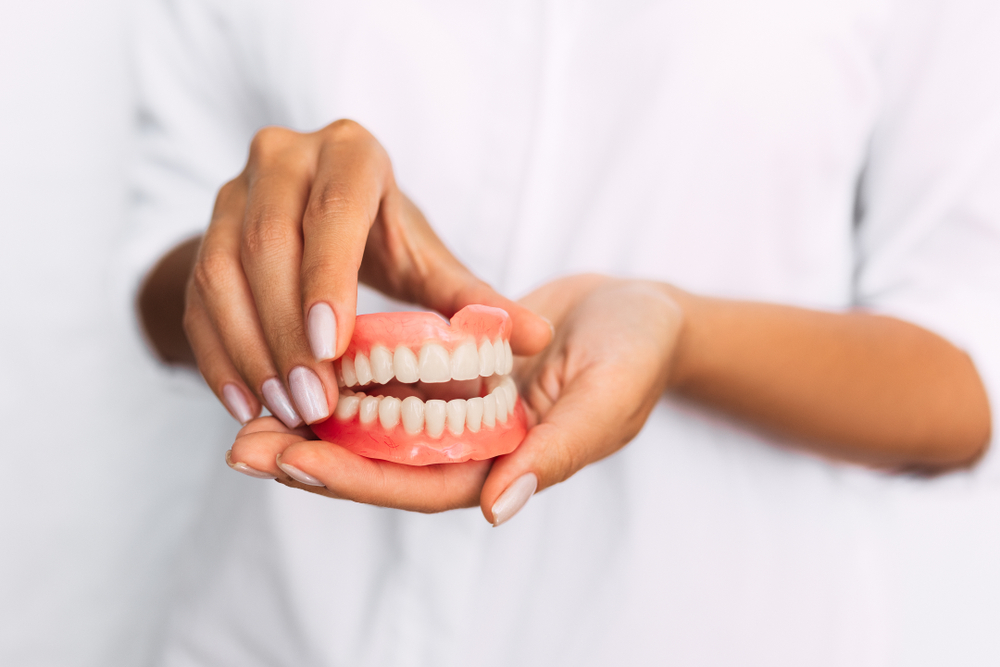
While most people are perfect candidates for dentures, there are some exceptions.
According to U.S. Census Bureau data and a 2020 Simmons National Consumer Survey, 40.99 million Americans wear dentures. Dentures allow you to speak and chew normally, but more importantly, they can give you your smile back.
However, not everyone is a perfect candidate for dentures, although those instances are rare. Talk to your dentist if you’re unsure, but in the meantime, here’s what you need to know if you’re considering getting dentures.
Who can get dentures?
With few exceptions, most people who have lost all or some of their teeth can benefit from dentures. Several factors come into play when determining who qualifies for dentures, such as the following:
How many teeth are missing? If you are missing only one or a few teeth, a bridge or dental implant may be better.
Are your gums healthy? Dentures sit along the gum line and bone, so your gums and bones must be strong enough to hold the dentures in place.
Can you take the dentures out from time to time? While keeping your dentures in all the time is tempting, you should take them out at night to prevent constant friction on the gums. People with diabetes, in particular, are highly vulnerable to gum sores and therefore need to remove their dentures more often.
What is it like to get dentures?
The first step is deciding what type of dentures you need. Complete dentures are great for someone who has lost all of their teeth. Partial dentures, as the name implies, help replace some missing teeth but need healthy teeth on both sides as anchors to help them stay in place. You can also consider implant-supported dentures or a dental bridge. Your dentist can further discuss the cost and difference among the various options.
But whichever type of dentures you choose, your dentist will first take an impression of your mouth. You may also need to extract several teeth to make space for the dentures.
Then, based on the impression, your dentures will be custom-made to fit your mouth. Permanent dentures can take several weeks to create, but you can be fitted with immediate or temporary dentures to speak and chew with a full set of teeth while you wait.
When you receive your permanent dentures, your dentist will see if they fit correctly or need any adjustments. In the immediate days and weeks after you get your dentures, you can expect the following:
Slightly irritated gums. Your gums may feel a bit sore as they get used to dentures. But it shouldn’t last long. You can use a denture adhesive to secure the dentures and prevent irritation.
More salivating. As with gum soreness, you’ll produce more saliva when you first put in the dentures. Again, this discomfort is only temporary.
Some difficulty speaking and chewing. As you adjust to the dentures, you may briefly encounter problems eating and speaking. During this adjustment period, try to eat soft foods in small portions. And practice saying words that you find difficult to pronounce. With time, you’ll find that your dentures act like your natural teeth.
Need dentures? Visit Espire Dental
Schedule an appointment at Espire’s Oklahoma City, Oklahoma, location today! Our highly trained dentists will examine your teeth and fit you with the perfect set of dentures. Don’t live near our Oklahoma City, OK, office? Find one of our other locations near you.
Oklahoma City, OK
12448 St Andrews Drive
Oklahoma City, OK 73120
